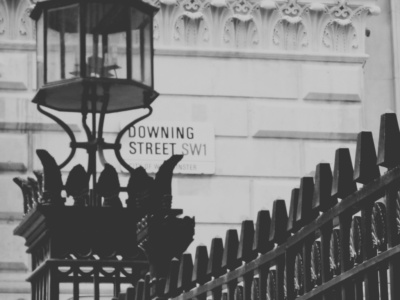By mid-2023, the UK base rate is predicted to reach 4.5%, as a result the majority of landlords are planning to raise rents to offset any increase in mortgage rates and additional expenses.
A new survey of 1,001 landlords by Finbri, shows that over half (52.75%) of landlords are looking to increase rents if the base rate increases to 4.5%.
The detrimental impact of the increasing interest rates may increase the existing rental stock shortage faced by the UK property market.
Stephen Clark, from Finbri, a bridging loan broker, comments:
“The base rate is directly linked to the cost of borrowing, so it’s not surprising that landlords are looking to increase rents.
It’s not just tenants who may be affected by rent increases if interest rates continue to climb.
The UK housing market as a whole could experience further undersupply and combined with a looming recession, there is a growing risk to the property market.
We now know that if the base rate reaches 4.5% this year, 44.66% may look to sell their investment properties.”
Why are landlords considering alternative options?
Increasing mortgage rates
The subsequent impact of the increasing base rate has been on rising mortgage rates, with homeowners experiencing high rates as well as a cost-of-living crisis.
With the Bank of England base rate predicted to rise to 4.5% by mid-2023, homeowners are looking to take the opportunity to fix their mortgage rates to avoid further increases.
This will help mitigate the effects of increasing interest rates and ensure they can retain their home at an affordable cost.
Inflation rising
Higher maintenance costs and the possibility of rent arrears, is commonly a result of high inflation.
Consequently, landlords are experiencing significant financial pressures and often have to take this into account when considering rent increases.
Lack of investment properties
53.85% of landlords have had trouble sourcing new investment opportunities. With fewer mortgage products available, increasing chain breaks as a result of rising rates, and 71% of estate agents believing home sellers have set unrealistic prices for their property, investment opportunities are limited.
However, there may be an opportunity for investors at auction. In December last year there were 3,300 residential properties available at auction, up 22.8% year-on-year, with 2,250 lots selling, up 6.5% y-on-y.
And as a result of more homeowners being unable to meet their mortgage payments, repossessions are a worrying increasing trend set to continue through 2023.
With lenders looking to offset their assets, there will be even more properties available at auction.
What options are landlords considering?
With the possibility of increasing rents, landlords are looking for other methods to remain financially viable.
Raise rents to cover additional expenses
Over half of the landlords surveyed plan to increase their rents if the Bank of England’s base rate reaches 4.5%.
This will allow property investors to cover additional expenses and mitigate any cost increases from rising mortgage rates.
Turn to alternative investments
45.35% of landlords will look to alternative investments.
There are several types of alternative investments that property investors will turn to if interest rates continue to rise:
- Stocks and shares (31.97%)
- Tangible assets (26.37%)
- Cryptocurrency (25.47%)
- Forex trading (25.27%)
- Private debt (25.17%)
- Hedge funds (24.78%)
- Private equity (23.88%)
- Infrastructure (23.08%)
- Venture capital (22.58%)
- Commodities (22.18%)
These alternative investments can help landlords diversify their portfolio should they wish to sell their properties.
For some landlords, the increasing rates may mean a decision to exit the market.
Finbri found that 44.66% of landlords plan to sell up or reduce their portfolio if the base rate reaches 4.5%.
However, before making such a decision, property investors must ensure they understand the implications of the current market conditions and the cost of exiting the market.
Ultimately, the UK property market could face a number of challenges over the coming years as a result of increasing interest rates.
However, with careful consideration of the available options, landlords could mitigate the effects of rising rates and continue to invest successfully in property.






















Comments